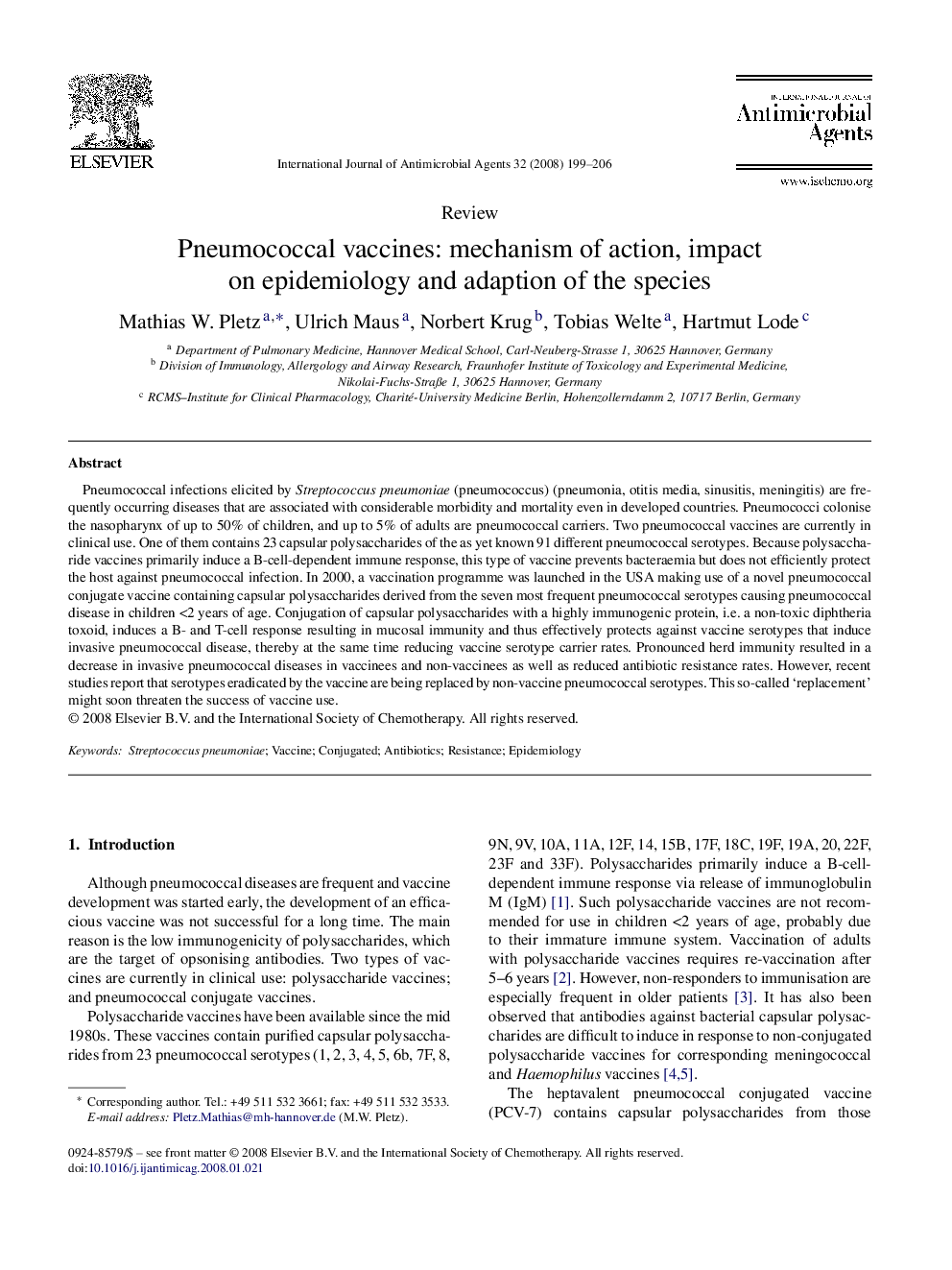| Article ID | Journal | Published Year | Pages | File Type |
|---|---|---|---|---|
| 3360240 | International Journal of Antimicrobial Agents | 2008 | 8 Pages |
Pneumococcal infections elicited by Streptococcus pneumoniae (pneumococcus) (pneumonia, otitis media, sinusitis, meningitis) are frequently occurring diseases that are associated with considerable morbidity and mortality even in developed countries. Pneumococci colonise the nasopharynx of up to 50% of children, and up to 5% of adults are pneumococcal carriers. Two pneumococcal vaccines are currently in clinical use. One of them contains 23 capsular polysaccharides of the as yet known 91 different pneumococcal serotypes. Because polysaccharide vaccines primarily induce a B-cell-dependent immune response, this type of vaccine prevents bacteraemia but does not efficiently protect the host against pneumococcal infection. In 2000, a vaccination programme was launched in the USA making use of a novel pneumococcal conjugate vaccine containing capsular polysaccharides derived from the seven most frequent pneumococcal serotypes causing pneumococcal disease in children <2 years of age. Conjugation of capsular polysaccharides with a highly immunogenic protein, i.e. a non-toxic diphtheria toxoid, induces a B- and T-cell response resulting in mucosal immunity and thus effectively protects against vaccine serotypes that induce invasive pneumococcal disease, thereby at the same time reducing vaccine serotype carrier rates. Pronounced herd immunity resulted in a decrease in invasive pneumococcal diseases in vaccinees and non-vaccinees as well as reduced antibiotic resistance rates. However, recent studies report that serotypes eradicated by the vaccine are being replaced by non-vaccine pneumococcal serotypes. This so-called ‘replacement’ might soon threaten the success of vaccine use.
